Author: BitpushNews
Elon Musk and Donald Trump, the once high-profile "loving" political and business duo, are now experiencing a dramatic split.
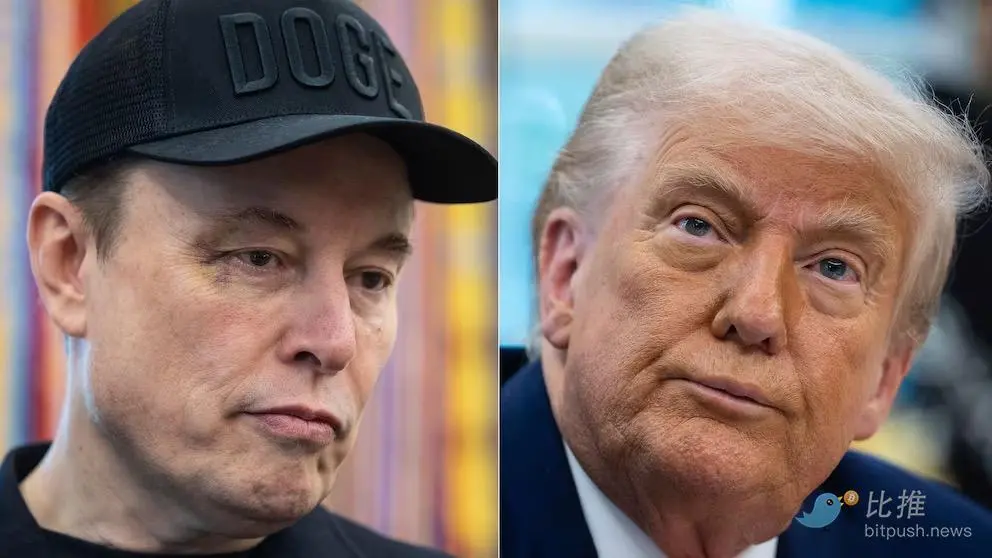
On June 4, local time, Musk publicly criticized a core bill pushed by the Trump administration on his social platform X (formerly Twitter), calling it a "disgusting monstrosity." The world's richest man wrote, "Sorry, I just can't watch anymore. This massive, absurd, and crammed-with-pork congressional bill is simply a disgusting monstrosity!" He even urged lawmakers to "kill the bill."
The next day, June 5, Musk tweeted multiple times, openly tearing into Trump and revealing shocking news: "Trump is in Epstein's files."
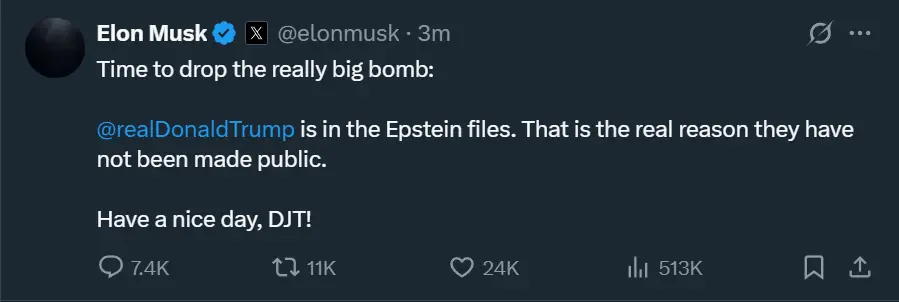
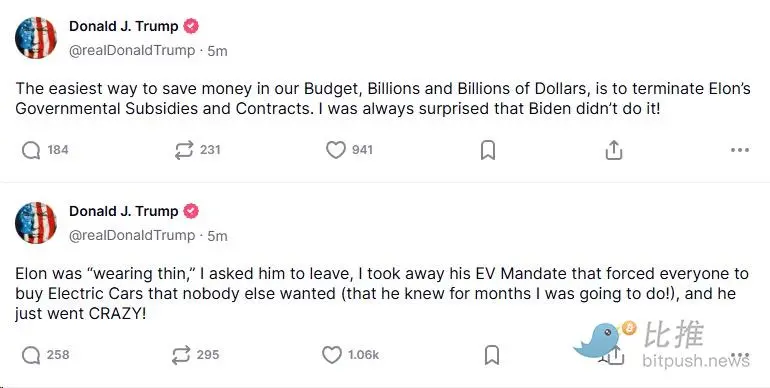
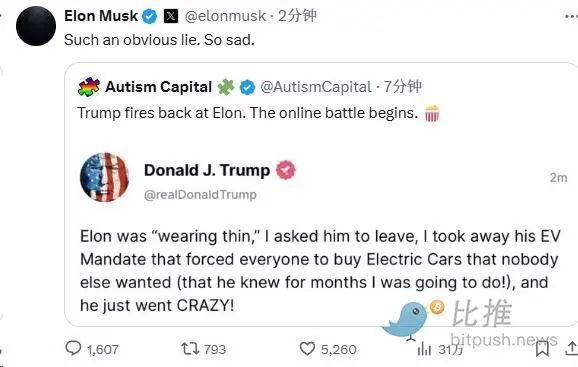
He also boldly expressed his agreement that Trump should be impeached:
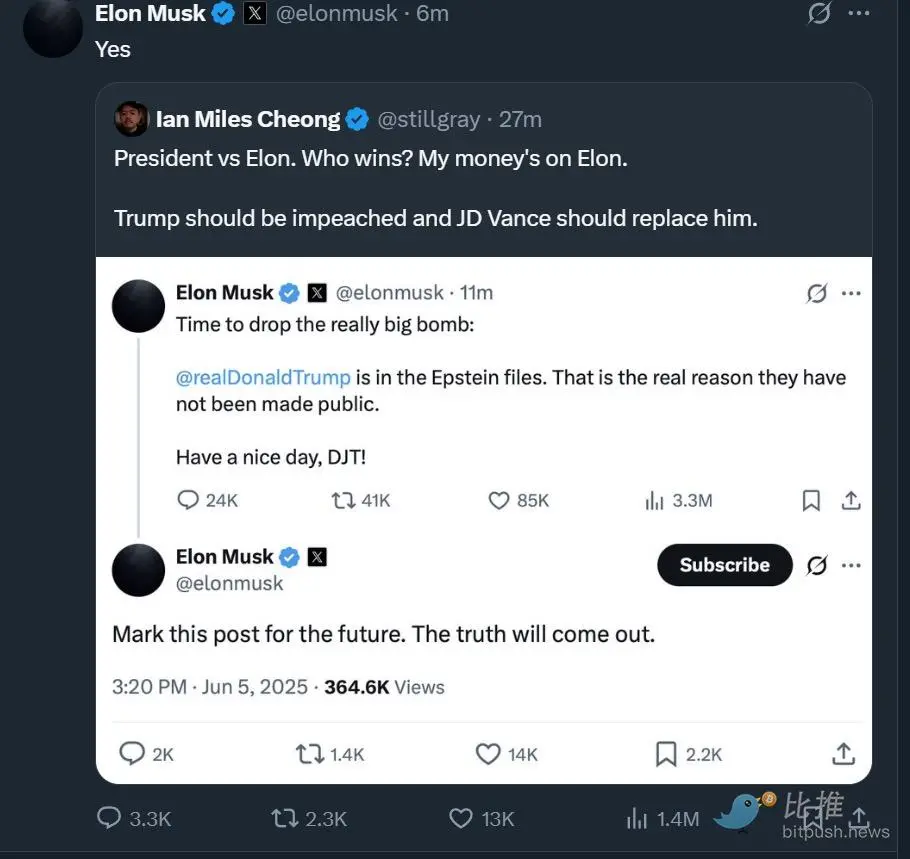
It is worth noting that less than a year ago, Musk was on stage at a Trump campaign rally wearing a prominent black "MAGA" hat, joking that he was "Dark MAGA"; Trump had even regarded this tech billionaire as an ally and "one of his own" on the road to reclaiming the White House. In just a few months, the two went from a close handshake to open confrontation, leading one to lament how "the little boat of friendship" can capsize so easily.
As the most prominent stars in their respective fields, the relationship between Trump and Musk has always been dramatic. From politics to business, they have sometimes admired each other and at other times clashed head-on.
On the eve of the 2024 U.S. presidential election, Musk began to express support for Trump, and their interactions became a focal point of public attention. One is a former president vowing to make a comeback, while the other is the world's richest man spanning electric vehicles, aerospace, and social media. These two bold and unconventional figures quickly drew closer, only to drift apart in the struggle for power and interests.
As foreign media Axios noted, both strongmen "have a side of arrogance in their personalities, believing they are not bound by conventional rules." Their alliance once gave a boost to the Republican Party's electoral prospects, but seasoned observers have doubted how long this political "honeymoon" could last, and recent developments seem to confirm those doubts.
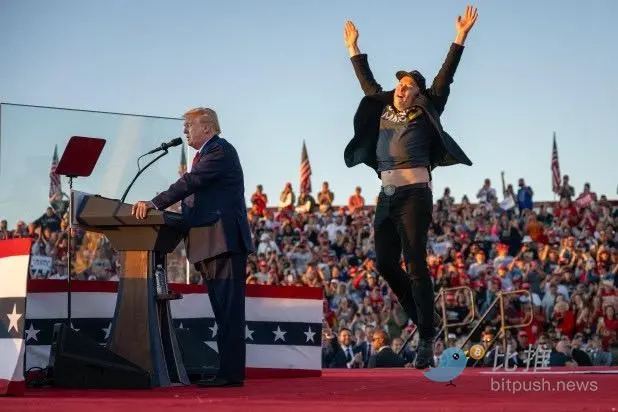
Key Timeline Overview
- September 28, 2023: Musk appeared at the U.S.-Mexico border, live-streaming the immigration situation in Eagle Pass, Texas, calling for the U.S. to "greatly expand legal immigration and expedite approvals on one hand, while strictly blocking illegal entry on the other." Musk expressed his agreement with Trump's immigration stance through action and criticized the Biden administration's ineffective border policies.
- May 24, 2024: Florida Governor Ron DeSantis announced his presidential campaign during a Twitter Spaces live stream hosted by Musk, but the event was briefly interrupted due to technical issues. Musk had previously leaned towards supporting DeSantis in challenging Trump, but DeSantis's campaign momentum subsequently declined.
- July 13, 2024: Trump faced a suspected assassination attempt at a campaign rally in Butler, Pennsylvania (gunfire caused chaos). Minutes later, Musk publicly expressed support for Trump's re-election on X for the first time. This marked Musk's official alignment with Trump's camp.
- August 12, 2024: Musk hosted a live dialogue with Trump on X, described by the media as "an extended campaign speech." During the live stream, Musk suggested that if Trump won, a "Government Efficiency Committee" should be established, led by him, to cut bureaucratic waste. Trump jokingly called it a "good idea." A week later, Musk posted, "I am willing to serve."
- October 5, 2024 (or late October): Musk made his first appearance at a Trump campaign rally. He donned a black "MAGA" hat and told cheering supporters, "As you can see, I am not just MAGA, I am Dark MAGA." Musk's high-profile embrace of this far-right subculture sparked public outcry.
- October 19, 2024: Musk announced that through his "American PAC," he would distribute "daily prizes of $1 million" to swing state voters, provided they signed a petition supporting free speech and gun rights. This innovative move was seen as Musk using his wealth to influence voters and assist Trump through unconventional means.
- November 6, 2024: U.S. Election Day. Trump was predicted by the media to win the election that evening, becoming the "elected president." Musk was invited to Mar-a-Lago to witness the victory moment with Trump.
- November 12, 2024: Trump announced the establishment of the "Department of Government Efficiency" (abbreviated as DOGE), to be co-led by Musk and Republican political newcomer Vivek Ramaswamy, serving as an independent advisory body to cut government spending and streamline the bureaucracy. Musk thus gained an unprecedented informal position of power in the new government.
- February 20, 2025: Musk made a high-profile appearance at the annual conservative conference CPAC as an advisor to Trump and head of DOGE. He took the stage holding a red chainsaw, calling it the "chainsaw for cutting bureaucracy," and vowed to significantly cut government spending, eliciting enthusiastic cheers from the audience. This act symbolized the climax of his collaboration with Trump to promote the so-called "government slimming" agenda.
- April 6, 2025: Reports emerged that Musk had privately urged Trump multiple times to abandon a new round of trade tariffs against allied countries, but to no avail. Trump's insistence on raising tariffs caused turmoil in the financial markets, with the Dow Jones plummeting and trillions in global market value evaporating, leading to significant losses in Musk's personal wealth. Observers pointed out that a rift had emerged between Trump and Musk, as their interests were not always aligned.
- May 30, 2025: Musk attended a farewell press conference with Trump at the White House. The "Trump-Musk honeymoon period" appeared to end on a high note: Trump publicly praised Musk for his "revolutionary contributions to the country," calling him a "patriot" and "my friend"; Musk thanked the president, stating he was "retiring after achieving success." However, on the same day he left office, Musk privately expressed reservations about a key bill pushed by Trump.
- June 3, 2025: Just days after leaving government office, Musk publicly blasted Trump's "Big Beautiful Bill" (a large tax cut and spending bill) on X. "Shame on those who voted for it: you know you did the wrong thing!" Musk fumed in a post. He accused the bill of being stuffed with unnecessary spending, which would lead to soaring fiscal deficits, and demanded Congress kill the bill. Musk's previous support for Trump transformed into a direct confrontation at this moment.
- June 5, 2025: When asked by reporters about Musk's statements in the Oval Office, Trump rarely showed displeasure, stating he was "very disappointed" in Musk. "You see, Elon and I used to have a good relationship," Trump said, "but now I'm not sure if we can be good again… He used to praise me highly, but now he is attacking me directly—perhaps the next step is an attack. But I am really disappointed; I helped him a lot." Trump hinted that Musk's opposition to the bill was due to its plan to eliminate electric vehicle subsidies, harming Tesla's interests. He also mocked Musk for "missing me after leaving my team," stating that many former officials would "love and then hate" — the Trump-Musk relationship had reached a freezing point.
From Estrangement to Alliance: Musk's Shift to Right-Wing Politics
Musk's interactions with Trump were not smooth sailing before the second half of 2023. As early as Trump's first campaign and presidency, Musk had a complex attitude towards the real estate mogul-turned-president: he was briefly invited to serve as an economic advisor to Trump in 2017 but left in anger over Trump's withdrawal from the Paris Climate Agreement. After that, they publicly disagreed on several issues. In fact, in July 2022, Trump mocked Musk as a "bull artist" during a rally—at that time, Musk expressed a preference for supporting Florida Governor DeSantis and believed Trump should "retire after achieving success," which displeased Trump.
However, starting in 2023, Musk's political trajectory underwent a noticeable change. That year, Musk gradually shifted from the liberal camp to a conservative stance. His criticisms of the Democratic government became increasingly sharp, frequently attacking President Biden and his policies on social media and in public. For example, Musk mocked Biden, saying, "The real president is the teleprompter," and "If someone accidentally knocks over the teleprompter, the scene would be as chaotic as in the movie 'Anchorman'." This analogy not only mocked Biden's public blunders but also implied that he was merely a puppet controlled by staff in Musk's eyes. Musk also accused the Biden administration of allowing inflation to run rampant, warning that "America is heading down a Venezuela-like path." He openly stated that he had "overwhelmingly supported the Democratic Party" but was increasingly disappointed, believing its policies were hijacked by "radical leftist ideas."
Musk's most direct dissatisfaction with the Biden administration was reflected in immigration, free speech, and industrial policies. In September 2023, Musk personally visited the U.S.-Mexico border to inspect the immigration surge. He appeared in the Texas border town of Eagle Pass wearing a cowboy hat, live-streaming scenes of groups of immigrants wading across the river. Musk, identifying as a descendant of immigrants, claimed to be "extremely pro-immigrant," but he advocated for the U.S. to "greatly increase the number of legal immigrants and expedite approvals to make it easier for hardworking and honest people to come to America; while also preventing those who enter illegally."
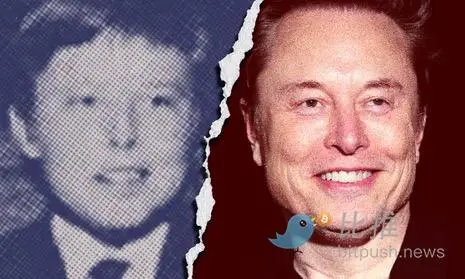
This "dual approach" rhetoric aligns with Trump's immigration policy direction: Trump has consistently cracked down on illegal immigration while claiming to welcome "merit-based" legal immigration. Musk seized this opportunity to harshly criticize the Biden administration's ineffective border control, stating that the current influx of illegal immigrants is overwhelming border communities. During the live stream, he introduced Texas Republican Congressman Tony Gonzalez, who complained that border residents "feel abandoned." Musk's strong stance on immigration earned him applause from Republicans, signaling his increasing alignment with Trump's camp.
At the same time, as the new owner of the social media platform X (formerly Twitter), Musk positioned himself as a "free speech" warrior, vehemently criticizing the previous management team's actions, such as banning Trump's account. Shortly after acquiring Twitter in October 2022, Musk unbanned Trump's account, which had been suspended for inciting the Capitol riots, and publicly invited Trump to return. Although Trump had not yet left his own "Truth Social" platform at that time, Musk's move garnered praise among conservatives, seen as a strong counter to "Big Tech's censorship of conservative voices." Musk also led the exposure of the so-called "Twitter Files," revealing the Biden administration's behind-the-scenes requests for the platform to suppress sensitive content, corroborating Trump's camp's accusations of "deep state" censorship. These actions made Musk a prominent figure in the American right's free speech discourse.
As reported by The New York Times, since Musk publicly took a side, users on the X platform have been "more frequently pushed content from Musk himself and other right-wing accounts." Musk not only shaped his conservative image but also inadvertently boosted Trump's visibility.
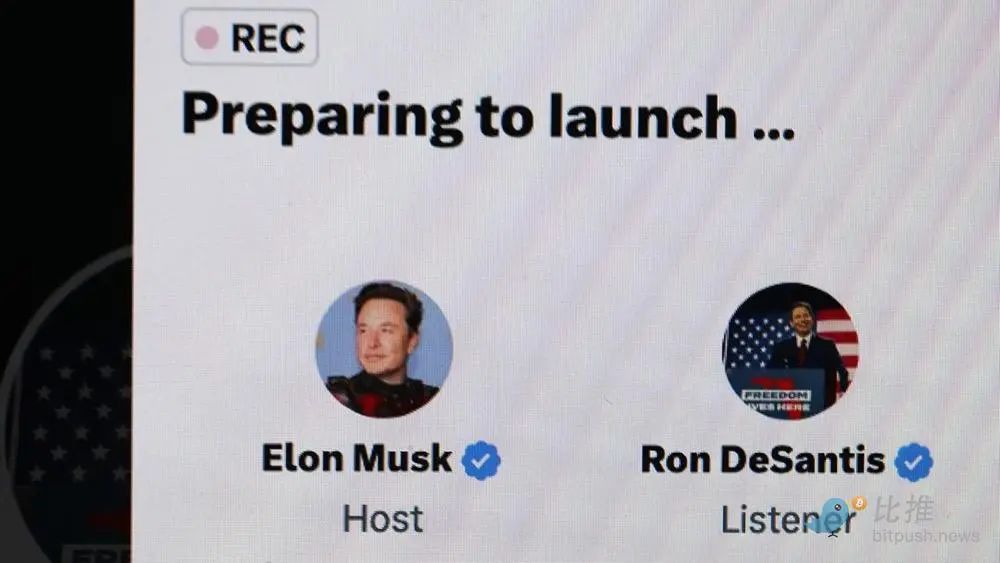
However, until mid-2023, Musk had not formally embraced Trump. At that time, DeSantis, Trump's main challenger within the Republican Party, was gaining attention, and Musk had shown interest in the younger politician. In May 2023, DeSantis chose to announce his candidacy during a Twitter Spaces audio live stream hosted by Musk. However, the live stream was plagued by technical issues, with choppy audio and chaos, turning DeSantis's high-profile debut into a laughingstock. Although Musk ended the event awkwardly, his posture of teaming up with DeSantis to "attack" Trump had already raised Trump's vigilance. Trump privately mocked Musk, saying, "He says he has never voted for a Republican, yet tells me he voted for me; what a liar." During the summer of 2023, DeSantis's momentum in the party's primary competition continued to decline.
Musk gradually realized that the grassroots of the Republican Party still closely followed Trump. As astute as he is, he began to reassess his political bets for the 2024 election.
Joining Forces Again: From "Pro-Trump" to Dark MAGA
As the second half of 2024 approached, the campaign activities for the U.S. election intensified. Despite facing numerous legal challenges, Trump was far ahead within the Republican Party. At this point, Musk made an unexpected yet reasonable decision: to fully support Trump's comeback. The catalyst was a sudden event—on July 13, 2024, Trump faced a security emergency at a rally in Butler, Pennsylvania, where he was hurriedly escorted offstage by Secret Service agents. Reports indicated that there were suspected gunshots, which, while not causing injuries, sparked panic. This incident stirred Trump's supporters and also moved Musk.
On the same day, Musk posted on X, officially expressing his support for Trump's presidential campaign. From that moment on, this unconventional entrepreneur and this defiant politician began to fight side by side.
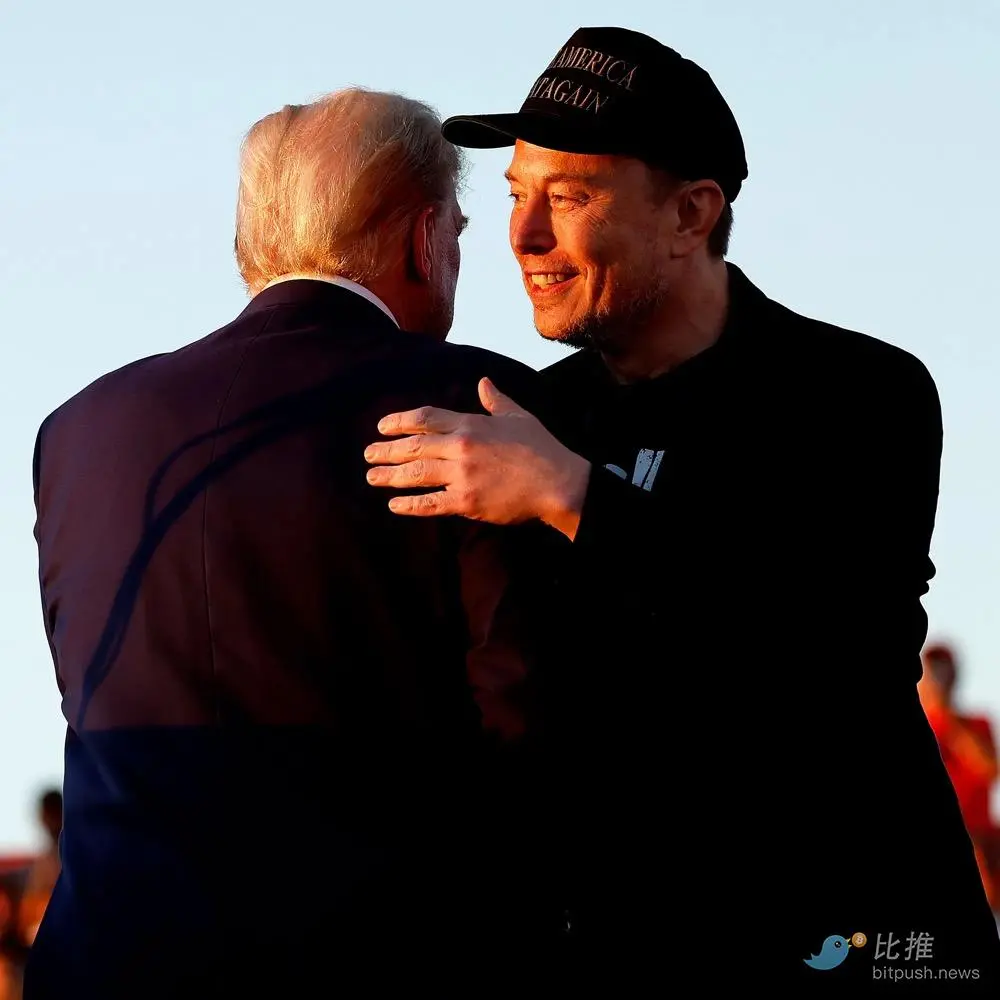
Musk's embrace of Trump's camp was multifaceted. First, financially, he generously provided support for Trump's campaign. According to data from the Federal Election Commission, Musk donated a staggering $238.5 million to pro-Trump groups through his own "American PAC" super political action committee. This astronomical figure made him the largest donor in the Republican camp for the 2024 election cycle.
Musk's donations included a rather creative initiative: he launched an online petition calling on voters to sign in support of the First Amendment (free speech) and the Second Amendment (gun rights), promising to give away $1 million daily to signers from swing states. This unprecedented "money giveaway" campaign attracted significant attention. Critics questioned whether this amounted to buying votes, but for conservative voters feeling constrained by speech regulations and gun restrictions, this raffle felt more like a celebration. As commentators noted, Musk's use of his wealth and influence to rally votes for Trump "broke the norms of American politics."
On the campaign platform, Musk also played a unique role. In August 2024, he invited Trump to join him for an online live dialogue on X.
This marked Trump's first return to a mainstream social media platform to speak publicly after being "banned" from major social media. Previously, Trump could only post messages through his own Truth Social, and Musk's invitation allowed him to reconnect with hundreds of millions of audiences. Their live stream was described by outsiders as "an extended campaign rally speech": Trump spoke at length, promoting his policy proposals, with Musk rarely interrupting.
For Musk, he was happy to play the supporting role, allowing Trump to shine while also discussing issues he cared about. For instance, during the live stream, Musk suggested that if Trump won, a committee focusing on "government efficiency" should be established, jokingly proposing that he could lead it. Trump responded with a smile, calling it a "good idea," and even joked that it could be named the Department of Government Efficiency, abbreviated as DOGE (the same name as Musk's beloved Dogecoin).
A few days later, Musk solemnly stated on X, "I am willing to serve." This seemed both a pledge of loyalty to Trump and an indication that he had tied his personal reputation to Trump's political fate.
In the final stages of the campaign in October, Musk took to the forefront to rally support for Trump. Throughout the month, he appeared at several of Trump's large rallies, drawing significant media attention. One classic appearance occurred at Madison Square Garden in New York: Musk, wearing a black "MAGA" baseball cap and a T-shirt emblazoned with "Occupy Mars," took the stage and introduced himself, saying, "As you can see, I am not just MAGA—I am Dark, Gothic MAGA." The audience of Trump's staunch supporters erupted in enthusiastic applause and cheers.
This somewhat bizarre declaration of "Dark MAGA" quickly became a hot topic on social media. Originally an online fringe meme with far-right and apocalyptic connotations, "Dark MAGA" emphasized using more radical and hardline means to "Make America Great Again." Musk's public embrace of this label surprised and even unsettled many moderate conservatives, but it also thrilled Trump's most fervent base. Some analysts pointed out that Musk's move was essentially a gesture of goodwill towards the most extreme supporters of Trump's camp, positioning himself as a "fellow traveler" alongside them.
Musk's high-profile "endorsement" also included personally attending campaign rallies to back Trump.
On October 5, 2024, he appeared at a rally in Iowa wearing Trump's signature red "Make America Great Again" hat, drawing media focus. Musk stated on stage, "As you can see, I am not just MAGA—I am 'Dark MAGA'." This statement quickly became a topic of public discussion, with some joking that their combination resembled an absurd reality show—"the president and his tech mogul partner." The Washington Post commented that Musk had risen to become Trump's campaign's "first buddy," appearing together in public and drawing attention.
Political Honeymoon: Advancing as Advisors and Mutual Praise
After Trump won the 2024 election, his relationship with Musk reached its peak, with the media dubbing it a "billionaire co-governance" in politics. Trump not only frequently praised Musk in public but also unprecedentedly created an informal position for him. A week after the election, Trump announced Musk's appointment to lead the newly established "Department of Government Efficiency" (DOGE), working alongside incoming government officials to "cut spending and trim the fat." This position, so close to the center of presidential power, was unprecedented for a businessperson without electoral authorization.
Axios bluntly stated that this made Musk "the most powerful unelected person in American history."
On January 20, 2025, Trump was sworn in as president in Washington, beginning his second term. According to U.S. media reports, Musk was also invited to attend the inauguration ceremony, sitting in the guest area alongside other tech giants Jeff Bezos and Mark Zuckerberg. These Silicon Valley figures, once viewed as political adversaries by Trump, gathered together to witness the event, which was intriguing. For Musk, this was his first public appearance in a national event as a "trusted confidant" of the president.
Shortly after the inauguration ceremony, Musk quickly took office, entering the White House as a special advisor and appointed government employee, beginning his work with DOGE.
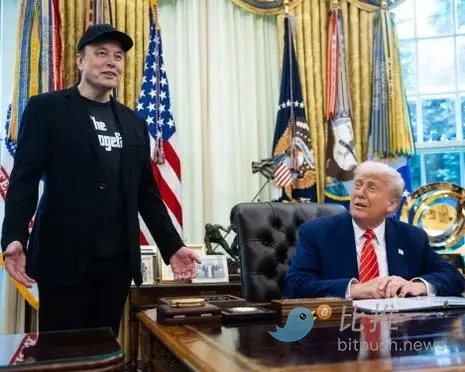
In the early days of Trump's presidency, Musk became a prominent figure in Washington. He and Trump mutually utilized and praised each other, creating a brief yet high-profile "honeymoon period." Trump almost never missed an opportunity to praise Musk in every setting, calling him "brilliant" and "energetic," capable of innovating government with business thinking. During a cabinet meeting at the White House, Trump publicly thanked Musk "for his contributions to the country," calling him "a patriot and my friend." At that time, Musk, wearing a conspicuous red MAGA hat, nodded shyly in acknowledgment.
Some attendees recalled that several ministers who had previously harbored grievances against Musk also raised their glasses under Trump's lead, praising the "fruitful results" of his streamlining efforts. Such collective praise for Musk was rare in Washington and quickly became a topic of conversation.
Musk's actual actions within the Trump administration also attracted attention. He swiftly launched a series of "bold" initiatives: demanding that government agencies submit budget-cutting proposals, freezing some civil servant hiring, and suspending funding for several federal projects, among others.
Reports indicated that Musk had boasted to Trump that DOGE could save the federal government at least $2 trillion in spending. However, while the ideal was grand, the reality was stark. Although Musk boldly "cut" several departments, by May 2025, he had only reduced less than 0.5% of the federal annual budget—equivalent to several billion dollars, far from the $2 trillion target.
Despite this, Trump continued to publicly support Musk's efforts, hosting a farewell press conference for him at the end of May. During the press conference in the Oval Office, Trump and Musk engaged in friendly conversation, expressing mutual gratitude in front of the cameras, transforming what could have been a departure fraught with tension into a display of "mutual respect and pleasant cooperation."
However, some signs indicated that Musk's situation in Washington was not as rosy as it appeared. Politico revealed that there were mixed feelings about Musk within the White House. On one hand, Trump and some close aides highly praised the innovative ideas he brought; on the other hand, many officials privately complained that Musk was "headstrong and unruly," often bypassing the staff system to directly express policy views and posting unvetted government reduction plans on X, catching cabinet members and the chief of staff off guard. Even more concerning for some of Trump's allies was that Musk was increasingly becoming a new target for Democratic attacks on the Trump administration—Democrats portrayed him as a "straw man" to be beaten, using him to rally their own voters.
For example, during a significant Supreme Court justice special election in Wisconsin in the spring of 2025, the Democratic camp heavily criticized Musk for spending vast sums to influence the election, claiming it was a referendum on this "extreme billionaire." As a result, the conservative candidate supported by the Republicans lost by 10 percentage points, with some members of Trump's team attributing the backlash to Musk's involvement. Various signs indicated that Musk's "double-edged sword" brought opportunities while also sowing hidden concerns.
Despite the noise, Musk and Trump continued to publicly display their close relationship. The two not only frequently met in the White House to discuss agendas, but Trump also arranged some high-profile moments to highlight their "alliance." On November 19, 2024, Trump personally flew to Texas to accompany Musk in watching the launch of SpaceX's Starship. The image of the president and the billionaire gazing up at the rocket's ascent quickly made headlines across major media outlets. This scene was interpreted as a joint declaration of their vision of "making America great again through technology," also implying Trump's reciprocation of support for Musk's business endeavors.
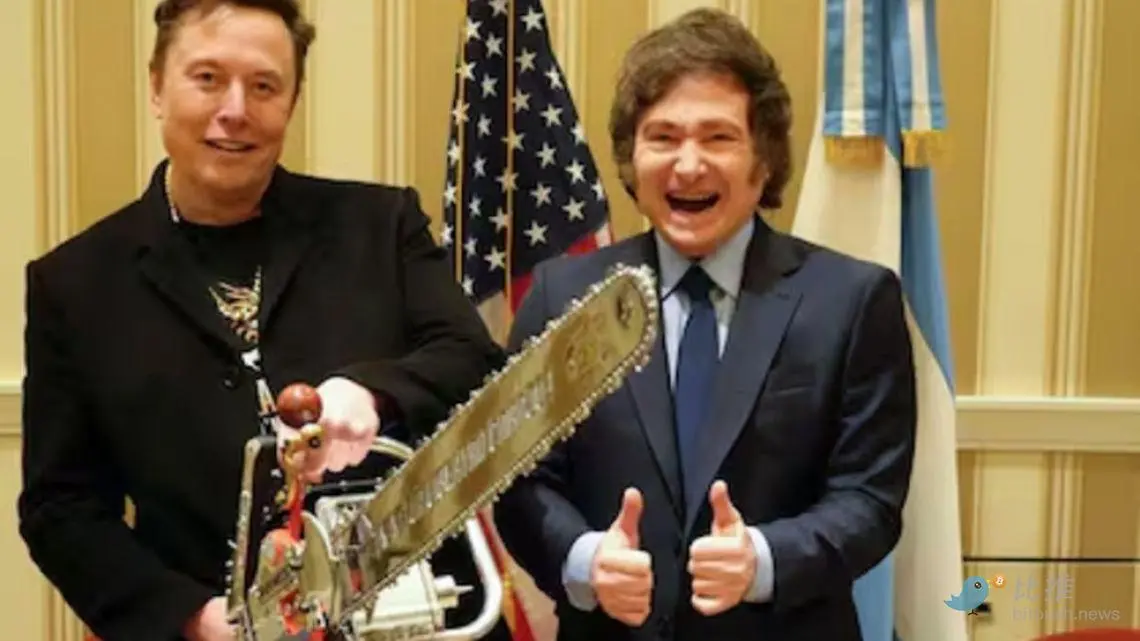
In February 2025, at the CPAC conference, Musk took the stage as a special guest. He raised a red chainsaw, joking to the audience, "This is our weapon against bureaucracy!" Interestingly, he was joined on stage by Argentina's newly elected populist president, Javier Milei, who even gifted the chainsaw to Musk. Conservative activists in the audience waved flags featuring the Dogecoin image and "Musk 2024," cheering for both of them. The Associated Press commented that this scene showed Musk had become a symbolic figure in Trump's conservative movement, "the global billionaire who once supported Obama and Biden now stands at the center of American right-wing politics."
Under Currents and Gaps: From Trade Wars to AI Regulation
However, even the hottest honeymoon could not mask the gradually emerging differences. In the spring of 2025, a series of policy contradictions began to test the alliance between Trump and Musk.
At the forefront was the trade and tariff policy towards China. Trump's hardline stance on trade with China is a hallmark of his agenda, while Musk's Tesla has deep ties to the Chinese market, leading to conflicting interests. In early April, Trump suddenly announced significant tariff increases on numerous countries, including allies, citing the need to protect American jobs and reduce the trade deficit. The news sent shockwaves through global markets: major stock indices plummeted, and investor panic spread.
As Tesla relies on global supply chains and the Chinese market, when Trump's tariff "club" came down, Musk's personal wealth also took a hit—reports indicated that during the stock market crash, Musk's net worth briefly fell below $300 billion.
Musk did not sit idly by. Reports revealed that after the tariff policy was announced, he directly contacted Trump multiple times over that weekend, pleading with the president to reconsider and withdraw the decision to impose comprehensive tariffs. Musk emphasized that the trade war had already caused "turmoil and chaos" in international markets, and further escalation would threaten the U.S. economy and harm Trump's financial backers. But Trump turned a deaf ear, showing no intention of backing down and even threatening to "increase tariffs by another 50%" the following Monday.
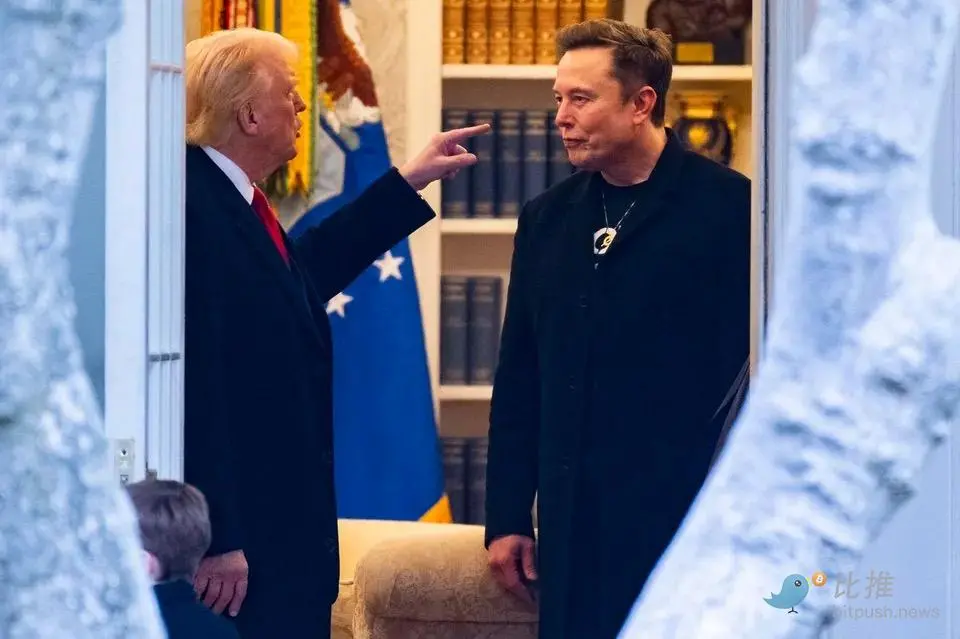
Musk's lobbying efforts hit a wall. The Guardian commented that Musk's failure to sway the tariff policy was seen as "a clear sign of the growing rift between the two." This tariff dispute highlighted the irreconcilable ideological differences between Trump and Musk regarding nationalist economic policies: the former insisted on pursuing trade protectionism, while the latter defended globalization and corporate interests.
Another potential point of conflict was artificial intelligence (AI) policy. Musk has long held a cautious, even wary, stance on AI, repeatedly warning of its "existential threats" and calling for regulations to ensure AI safety. In contrast, the Trump administration leaned towards deregulation and encouraging competition on AI issues. During the 2024 campaign, Trump promised to completely overturn Biden's AI regulatory framework, accusing the Democratic government of imposing "shackles on innovation" and forcing in extreme leftist ideas.
Trump stated that he would ensure AI development "is rooted in free speech and human welfare," implying that businesses should primarily self-regulate and reduce government intervention. In stark contrast, Musk not only publicly supported stricter AI safety legislation but also unusually endorsed a California bill aimed at reviewing AI algorithms (though the bill was ultimately defeated). He expressed concerns that unregulated AI could lead to ethical and safety disasters. It is foreseeable that in this cutting-edge field of AI regulation, their differences were merely simmering beneath the surface. If Trump were to push for the repeal of AI safety measures, whether Musk would stand up to oppose it could become a potential friction point between them.
Additionally, Musk and Trump also clashed over issues of fiscal deficit and spending. Musk, as an advocate of streamlined efficiency, was naturally wary of government deficits and debt; Trump, on the other hand, focused more on large-scale tax cuts and high spending to stimulate the economy, showing little concern for federal debt.
In early 2025, the Trump administration launched an ambitious "Big and Beautiful Act," which included extending the 2017 tax cuts, increasing military spending, and funding for border security, significantly ramping up fiscal spending. An independent congressional agency estimated that this plan would add $2.4 trillion in debt over the next ten years.
Musk was deeply concerned about this. In private settings, he reminded Trump that such actions would essentially waste the hard-earned savings he had achieved through DOGE. By May, Musk was preparing to step down from his DOGE position as planned, but he did not forget to sound the alarm on budget issues. He gradually made this unease public: frequently sharing deficit warning messages on X, bluntly stating that "America is speeding towards debt slavery." Musk even hinted that if the government continued to accumulate debt, the U.S. would eventually face the dire consequences of fiscal mismanagement.
Initially, the White House and Republican leadership attempted to downplay these early signs of disagreement. Presidential press secretary Karoline Leavitt stated in response to media inquiries that Musk's dissatisfaction with the budget proposal was merely "a small disagreement in an overall harmonious relationship," and it did not change the president's determination to push the bill through. Senate Majority Leader John Thune told reporters that regardless of what Musk said, Congress would implement the president's legislative agenda. However, it was undeniable that some of Trump's close aides had begun to view Musk as an "uncontrolled variable" or even a "political burden."
Politico revealed that White House Deputy Chief of Staff Stephen Miller and others were extremely annoyed by Musk's unilateral criticism of the tax reform bill, prompting the president's team to make late-night calls to several senators to reassure them and reiterate Trump's support for the bill. Sources indicated that in mid-May, Trump mentioned in an internal meeting that Musk would "leave after achieving success," allowing him to return to the business world after his 130-day special employee term ended.
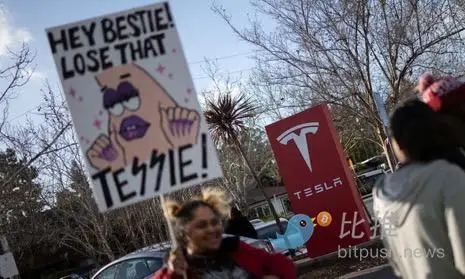
In fact, just as DOGE was in its final sprint phase, Tesla's profits plummeted by 71% in the first quarter. Wall Street analysts urged Musk to stop over-investing in politics and return to rescue Tesla's declining stock price.
Musk himself acknowledged that the company needed him to invest more energy. Clearly, the conflict between his dual identities as a "businessman and public servant" was putting Musk in a difficult position, while Trump's camp was quietly preparing for a "post-Musk era."
Short-lived Good Times: Public Break and the Aftermath of Love and Conflict
At the end of May 2025, Musk stepped down from his role as special advisor to the "Department of Government Efficiency" as originally planned. He expressed gratitude to Trump and his colleagues on social media, stating, "The mission is basically complete; I can return to focus on my career."
White House officials emphasized that Musk's departure was merely the "end of a phase," and the president still held gratitude towards him, hoping to continue receiving his support in the future. On May 30, when Trump and Musk staged a polite "farewell show" at the White House, the outside world might have believed that the two would continue to maintain a friendly cooperative relationship. After all, during the press conference, Trump praised Musk as "remarkable," and Musk repeatedly nodded in acknowledgment, presenting a harmonious scene.
However, just a few days later, this "honeymoon" relationship took a sharp turn for the worse. The conflict was ignited by the aforementioned "Big and Beautiful Act" dispute. Musk had already harbored doubts about Trump's fiscal plan, and after he was no longer in government, he felt even less constrained in choosing to publicly criticize it.
In early June, he posted a series of sharply worded messages, calling on Congress to shoot down the bill. Musk lambasted the bill for being filled with "pork" (a metaphor for unrelated personal interests), claiming it would lead to uncontrolled federal deficits. He also mocked the lawmakers supporting the bill as "knowing wrongdoers." Such public criticism of the president's legislative agenda was unimaginable during their period of cooperation. Musk also deliberately drew a line regarding personal grievances: he did not directly attack Trump, only the policy itself. He later clarified that he did not oppose the elimination of electric vehicle subsidies, "as long as that disgusting 'mountain of wasteful spending' is removed from the bill." He emphasized that he opposed the excessive spending parts of the bill, not the provisions that would harm Tesla's interests.
Initially, Trump responded through aides, stating that he was already aware of Musk's views on the bill, but this "would not change the president's position at all." However, Musk's high-profile "defection" undoubtedly enraged Trump.
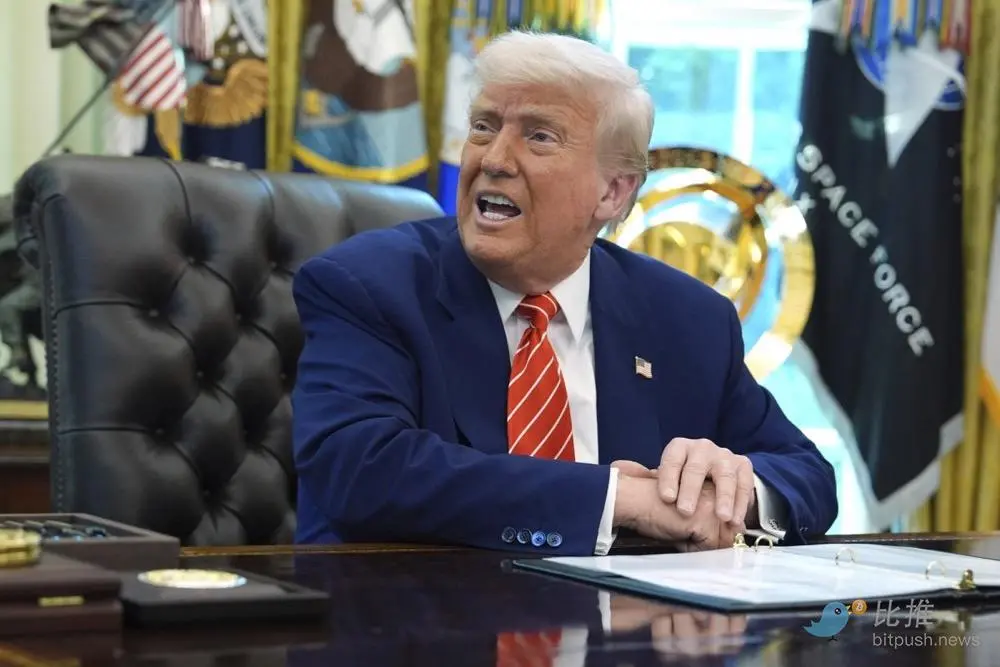
In a media interview on June 5, Trump rarely named Musk in his criticism, allowing the public to witness the former president's cold side when turning against a former ally. "Elon used to praise me in every way… now he hasn't attacked me personally, but I am sure he will do so soon," Trump said to reporters in the Oval Office. "Honestly, I am very disappointed in Elon. I have helped him a lot."
This statement reveals Trump's typical "transactional" mindset: in his view, Musk has reaped his benefits (in terms of financial backing and political prestige) and should therefore return absolute loyalty; any criticism now is seen as ingratitude.
Trump further implied that Musk's opposition to the bill was due to its elimination of electric vehicle tax credits, suggesting he was protecting Tesla's interests. He also mocked Musk for "not being able to sit still after leaving, wanting to come back to continue working," adding, "Many people regret leaving my administration; some come back to serve, while others turn against me and become enemies." This series of statements effectively announced that the honeymoon between Trump and Musk was officially over, and their relationship had plunged to a freezing point.
As soon as Trump's strong words were spoken, Musk immediately responded on X, somewhat sarcastically echoing Trump's preference for the bill: "Let the trimmed-down 'Big and Beautiful Act' win." He emphasized his support for a streamlined tax reform plan while insisting on cutting wasteful spending. This tit-for-tat exchange led the media to use terms like "crossfire" and "tear into each other." Suddenly, "Trump-Musk split" became a hot topic in political circles. Some commentators humorously noted that their relationship was proving a popular internet saying: "The friendship boat capsizes at any moment."
More notably, the public fallout between Trump and Musk was not an isolated incident but reflected a larger conflict within the Republican Party over fiscal policy. Musk's stance on "deficit reduction" actually gathered several hardline conservatives in Congress who also strongly opposed Trump's massive tax cuts and spending plan. These Republican senators prided themselves on being "deficit hawks," demanding significant cuts to the government budget, leading to a split within Trump's camp.
Trump, on the other hand, tried to maintain party unity, privately persuading dissenters to "give Musk a break" and temporarily ignore his calls to advance the bill's vote. Some White House aides downplayed Musk's complaints as "just a one-time disagreement," claiming that the president and Musk "overall still have a harmonious relationship." However, many Republicans in the Senate held Musk in disdain. As one unnamed senior senator put it, "I don't think many senators really care what Elon thinks… it's just something to listen to. We are serious policy makers responsible for governing the country and don't have time to heed his finger-pointing." This statement highlighted the establishment's dismissive attitude towards an outsider like Musk.
As the controversy brewed, Trump's communications team found itself in a reactive position.
Politico reported that those close to Trump recently breathed a sigh of relief, believing that Musk's timely exit from the inner circle might not be a bad thing for the president. After all, with the 2026 midterm elections approaching, Trump needed the entire party united to maintain control of both chambers, leaving no room for any hindrances. Musk, as a rebellious "outsider," could ultimately become a liability or even an adversary.
Even Trump himself, after publicly expressing disappointment in Musk, made a significant remark: "We used to have a great relationship; now it's hard to say." This statement, heard in political circles, was akin to formally drawing a line.
Aftermath and Outlook: Can the Capsized Boat Steady Itself?
Currently, the conflict between Trump and Musk over policy and loyalty continues to simmer. A large number of conservative media and opinion leaders supporting Trump have begun to attack Musk, accusing him of "ingratitude" and "standing against the people." Musk's supporters defended their idol, claiming he was sticking to his principles and not being a mere echo of the president. For a time, fans from both sides fiercely clashed on social media, reminiscent of the drama when Trump fell out with his former lawyer Cohen or his former Defense Secretary Mattis. However, this time, the two sides of the rift were the president and the world's richest man, wielding significant influence over public opinion, making the implications even more complex.
In the public discourse, many media outlets published in-depth analyses exploring the deeper reasons behind the breakdown of their relationship. Axios had warned as early as after the 2024 election that the "power duo" of Trump and Musk faced a risk of rupture, as both personalities could not tolerate being second fiddle. Both were equally ambitious and headstrong; their brief collaboration was based on mutual benefit, but long-term cooperation would inevitably lead to conflict.
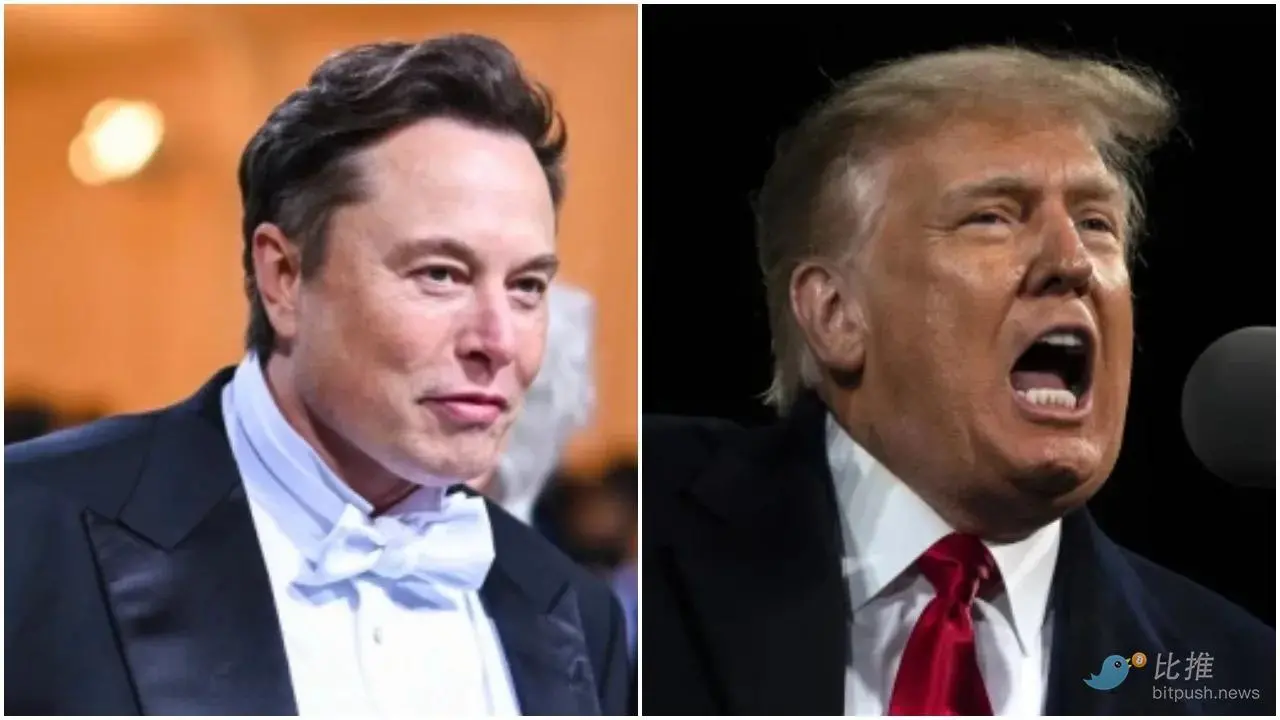
The Guardian pointed out more direct considerations of interest: the trade war and fiscal disputes proved that Musk ultimately needed to protect his global business empire and personal wealth, while Trump had to cater to populism and voter promises. When the two interests clashed, "friendship" would yield to their respective calculations. Some commentators humorously noted that perhaps "Musk's loyalty to Trump had a validity period of only 130 days"—exactly the duration of his special government employee term. Once that period was over, he would regain his freedom and no longer be bound by the team, able to express differing opinions at will.
Interestingly, Trump himself left a glimmer of possibility for reconciliation in this fallout. After fiercely criticizing Musk, he shifted his tone, stating, "I really wanted to keep him a little longer… he did a great job." The White House spokesperson later added, "The president really wanted to keep Elon, but Elon has his own company to manage." This not only denied the severity of the split but also seemed to reveal a sense of regret and reluctance. Historically, Trump has not been without examples of mending fences with former allies, such as with former campaign strategist Bannon and Congresswoman Marjorie Taylor Greene, who, after falling out, reunited when political needs arose.
Therefore, some analysts believe that it is not out of the question for Trump and Musk to shake hands and reconcile at some point in the future. After all, they share common political enemies (such as the establishment Democrats) and similar foreign policy ideas (such as distrust of the media and elites). A person familiar with both said to The New York Times, "This is more like a grand dance than a real duel."
However, regardless of the future direction, the brief lifecycle of the "Trump-Musk alliance" has left a thought-provoking episode in history. It showcased a moment of strange intertwining between political and business power in America: a former president willing to grant unprecedented influence to a business leader, while the latter once poured resources into helping the president make a comeback. This "love" was driven by shared interests; when those interests no longer aligned, "conflict" became inevitable.
Trump is known for being "capricious, fickle, and demanding loyalty above all else," while Musk is accustomed to being "unconventional and independent," maintaining his style even in the face of the president. This determined that the alliance between the two was fraught with cracks from the moment it was born.
Now, the "friendship boat" carrying these two influential figures of the era has capsized in the waves. Perhaps one day in the future, Musk and Trump will choose to meet each other's needs again and shake hands to sail together—just as often happens in American politics, where there are no permanent friends and no permanent enemies. But it is certain that after this round of love and conflict, the American public, media, and even the political arena have gained a clearer understanding of the true nature of their relationship.
As some sharp commentary pointed out: "Trump's so-called loyalty is merely a demand for others to be infinitely loyal to him; while Musk's friendship ultimately must yield to the calculations of interest." Such an ironic annotation may well be the best warning this political legend offers to the world.
免责声明:本文章仅代表作者个人观点,不代表本平台的立场和观点。本文章仅供信息分享,不构成对任何人的任何投资建议。用户与作者之间的任何争议,与本平台无关。如网页中刊载的文章或图片涉及侵权,请提供相关的权利证明和身份证明发送邮件到support@aicoin.com,本平台相关工作人员将会进行核查。



